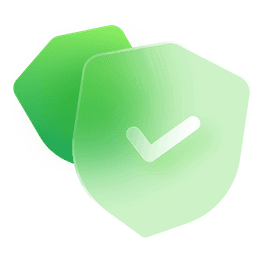Shared hosting is a popular and cost-effective way for individuals and small businesses to host their websites. However, the very nature of shared hosting, where multiple websites share the same server resources, presents unique security challenges. In this blog post, we will explore the security risks associated with shared hosting and discuss strategies to mitigate these risks.
1. Cross-Site Contamination
Shared hosting environments can be vulnerable to cross-site contamination, where one compromised website on the server can infect or compromise other sites. This happens because all websites on the same server share common resources, such as the web server software and databases.
Mitigation: Regularly update your website's software, use strong, unique passwords, and implement security best practices to reduce the risk of your site being the source of contamination. Web hosting providers can also implement server-level security measures to isolate websites more effectively.
2. Limited Control
In shared hosting, you have limited control over server configurations and security settings. This means you may not be able to implement certain security measures that are available in a dedicated hosting environment.
Mitigation: Choose a reputable hosting provider that offers security features and configurations that align with your needs. Communicate with your hosting provider about specific security concerns and ask about any available security add-ons or options.
3. Resource Exhaustion Attacks
Resource exhaustion attacks, such as Distributed Denial of Service (DDoS) attacks, can target one website on a shared server but affect all others on the same server as well.
Mitigation: Invest in a web hosting plan that includes DDoS protection and traffic filtering. Additionally, implement website security measures like Web Application Firewalls (WAFs) to filter out malicious traffic.
4. Outdated Software
Some hosting providers may not keep server software, such as the operating system and web server software, up to date. Outdated software can contain known vulnerabilities that attackers can exploit.
Mitigation: Choose a hosting provider known for its commitment to software updates and security patching. Regularly update your website's software, plugins, and themes to minimize vulnerabilities.
5. Insecure Neighbors
You have no control over the security practices of other websites sharing the same server. If one of these sites has poor security measures, it could put your site at risk.
Mitigation: Regularly monitor your website for suspicious activity. If you suspect a security breach or notice unusual behavior, contact your hosting provider immediately.
6. Limited Privacy
In shared hosting, you may have limited privacy since your website's data resides on the same server as others. While hosting providers have policies in place to protect your data, there is still a level of shared access.
Mitigation: If privacy and data security are paramount, consider a more private hosting option like Virtual Private Server (VPS) hosting or dedicated hosting.
Shared hosting is a cost-effective solution for hosting websites, but it comes with unique security risks. To protect your website and sensitive data, choose a reputable hosting provider that prioritizes security, keep your website and software up to date, and consider additional security measures such as WAFs and DDoS protection. By understanding and mitigating these risks, you can enjoy the benefits of shared hosting while maintaining a secure online presence.

control security posture
